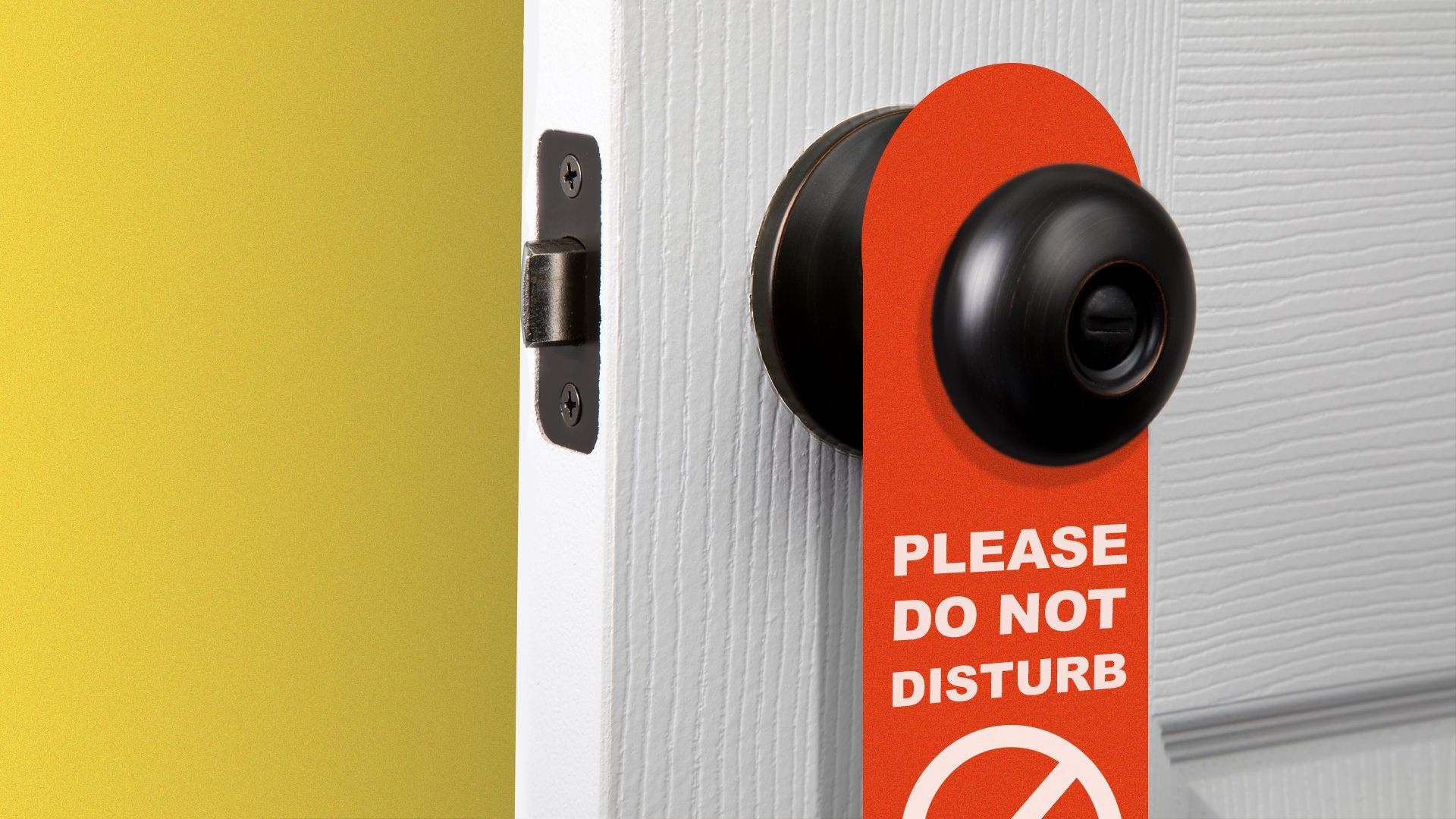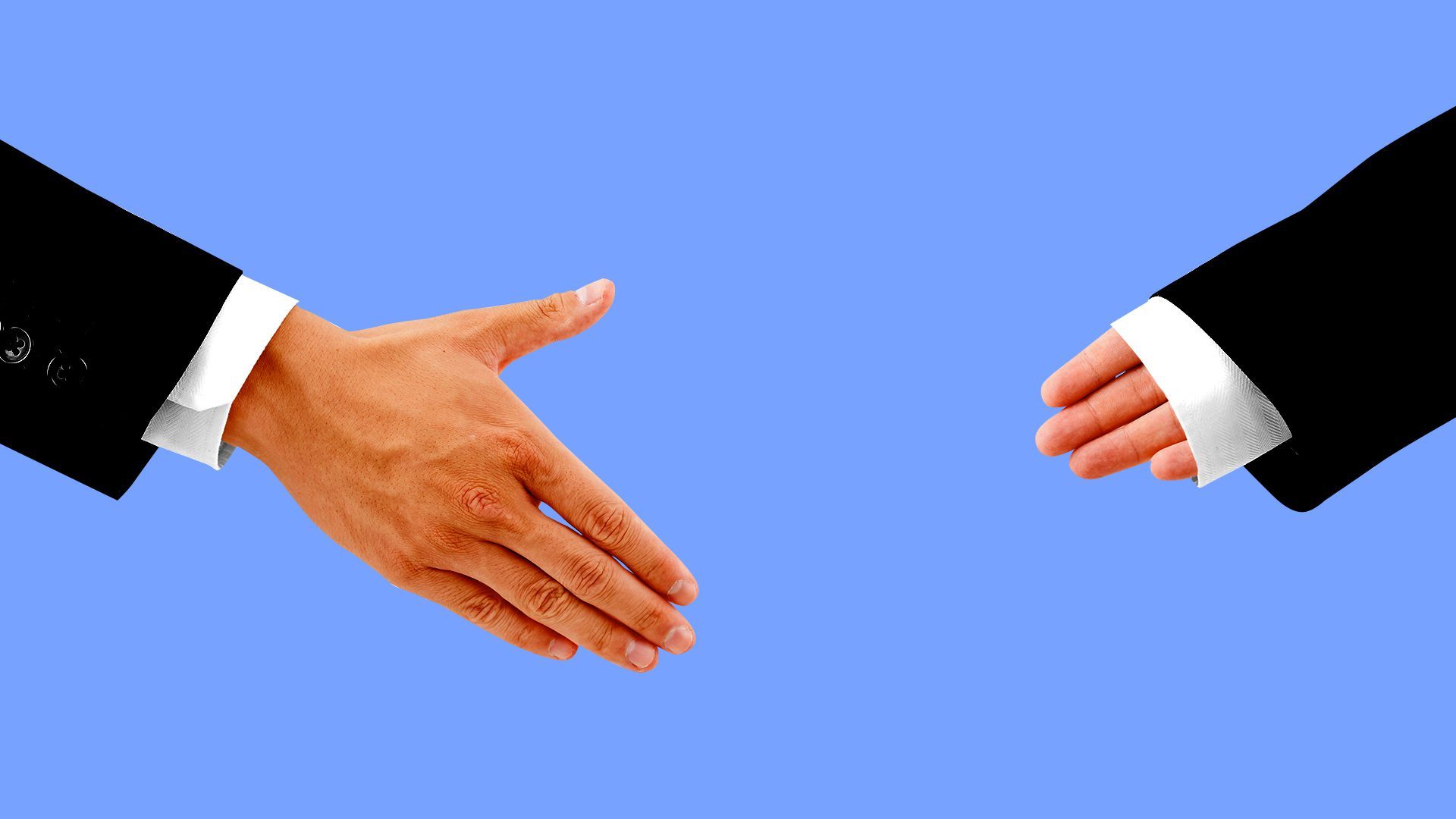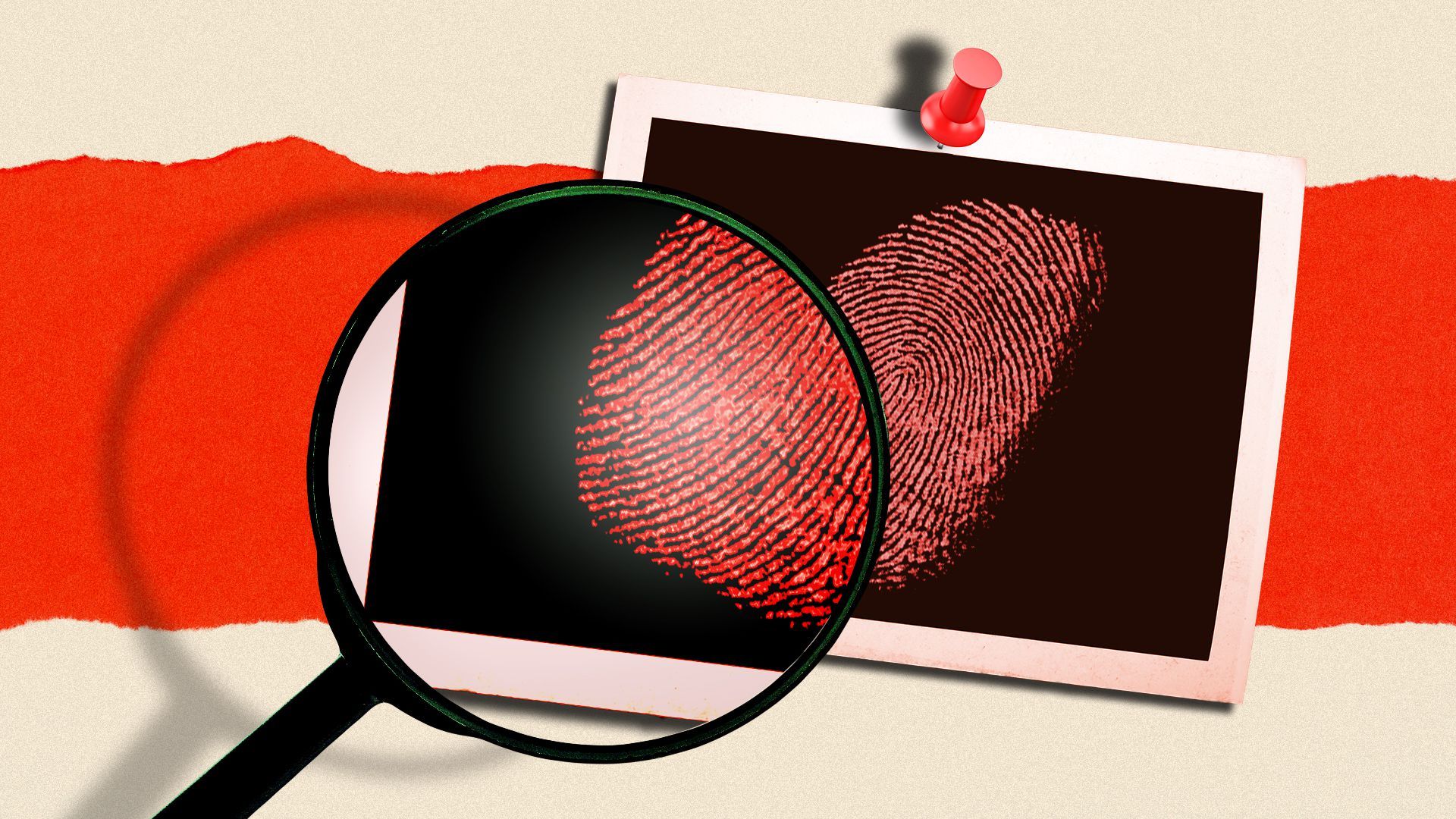| | | | | | | Presented By General Motors | | | | Axios What's Next | | By Bryan Walsh, Erica Pandey and Joann Muller ·Jun 18, 2021 | | Today we have a guide to post-pandemic social etiquette, a guide to shaking hands (or not), and inflatable sails for cargo ships. "What was next" trivia: On this day in 1873, who was fined $100 — over $2,400 in today's dollars — for voting illegally? 🗳 - Credit to reader James Funk for the first correct answer to yesterday's question: Iceland 🇮🇸.
- Send your answer, along with tips and feedback, to whatsnext@axios.com.
Today's Smart Brevity count: 1,253 words ... 4.5 minutes. | | | | | | 1 big thing: The less than welcome return of social obligations |  | | | Illustration: Shoshana Gordon/Axios | | | | The curbing of the pandemic in the U.S. means the return of dinner parties, movie dates and brunch. But it also means the return of things you don't really want to do, writes Erica Pandey. What's happening: Many of us spent over a year stuck in our homes by default — not having to decline social engagements we weren't keen on. Now it's time to relearn the fine art of saying "no." - "I don't know that there's been another time in modern history that we've all had time to go home and think," says Mark Leary, a psychology professor at Duke University.
- "We've realized that there's a certain portion of our social interactions that were never all that rewarding."
"But now there's pressure on people to come back out just as there was pressure to stay home," says Rebecca Adams, a sociologist at the University of North Carolina at Greensboro. "We'll have to accommodate more and more casual relationships." And that's tiring. The big picture: Our brains are wired to maintain a finite number of social connections — about 15, Leary says. - That's why spending the last year and a half with just close friends and family felt comfortable for many of those who could do it.
- On top of that, many people learned to fill their free time with other hobbies, like cooking or making art or running, and they're not willing to give up those hobbies to make room for more social engagements, especially if they're not very fulfilling.
What they're saying: "There are people at work that are perfectly fine, but I don't want to talk to you at the copy machine again," says Leary. "I'd rather do anything else." The stakes: For introverts or people with social anxiety who isolated last year, the return to normal comes with even more burdens. The pandemic was a respite from the daily stressors of interacting with lots and lots of people, and now they're being called back to work or social functions. - "It's a shame that people have such a difficult time saying no," Leary says. Try being honest with people and gently explaining to people that you're overbooked or easing your way back into socializing after the pandemic, he says.
What to watch: The pandemic is likely to have a lasting impact on our social lives. Look for people to decrease the number of social interactions they have by up to 20%, according to Leary. Share this story. |     | | | | | | 2. Handshakes are coming back — and we're not ready |  | | | Illustration: Aïda Amer/Axios | | | | Handshakes were one of the first habits to go when the COVID-19 pandemic began last year, but with vaccination rates rising, you may find yourself confronting an outstretched hand again soon, writes Bryan Walsh. Why it matters: As people emerge from their pandemic shell, it's worth reconsidering the humble handshake — or picking up a new habit. Handshakes may have emerged as a way to demonstrate to people we didn't know that our intentions were friendly and that we weren't carrying any weapons. - But like any form of personal contact, they can spread disease, whether directly through skin-to-skin touching or simply by bringing two people in close proximity.
- "I don't think we should ever shake hands ever again, to be honest with you," Anthony Fauci said on a podcast last April.
- A 2014 study found that handshakes transmitted nearly twice as much bacteria as a fist bump or high five.
Yes, but: As you already may have noticed by its gradual reemergence as vaccination coverage expanded, "the handshake is hard to replace," says Joe Keohane, author of the forthcoming book "The Power of Strangers." - "Touch and eye contact trigger oxytocin, which bonds people together," he adds.
Between the lines: If both you and the person you're shaking hands with are vaccinated, there's very little risk of contracting COVID-19. - If you're still worried, there are other greeting options that involve little or no contact, like a fist bump or the namaste gesture, which governments in East Asia promoted after the 2003 SARS outbreak.
The bottom line: We may be outgrowing the handshake, but we'll never outgrow our need to connect with each other. Read the rest. |     | | | | | | 3. Inflatable sails to give cargo ships a greener push |  | | | Michelin's Wing Sail Mobility (WISAMO) system, seen here in a mockup, can reduce a cargo ship's fuel consumption by up to 20%. Credit: Michelin | | | | Dirty cargo ships urgently searching for cleaner propulsion alternatives might consider a new spin on an old idea: inflatable sails, writes Joann Muller. What's new: The Wing Sail Mobility (WISAMO) project, an automated, inflatable wing sail system, was introduced this week by Michelin, the French company known for its tires and restaurant guides. - Two Swiss inventors co-developed the system with Michelin R&D.
- The telescopic mast is retractable, making it easy for a ship to enter harbors and pass under bridges.
- The puffy, 1,000-square-foot sails, each shaped like an airplane wing, automatically fold up like an accordion on the ship's deck when not in use.
Why it matters: Michelin says the system — which operates in addition to conventional propulsion — can improve a ship's fuel efficiency by up to 20%. (Watch a video of how it might work here.) The big picture: The shipping industry, which accounts for almost 3% of the world's carbon emissions, is scrambling to adopt cleaner technologies. What to watch: French sailor and racer Michel Desjoyeaux has been testing the WISAMO system on a sailboat. - It will then be tested on a merchant ship in 2022 before going into production.
- The plug-and-play design can be retrofitted to existing vessels — including pleasure craft — or designed into new ships.
|     | | | | | | A message from General Motors | | An EV for everyone | | |  | | | | General Motors is adding 30 new electric vehicles and producing the revolutionary Ultium Platform. The background: This is made possible by a $35 billion investment in EVs and AVs through 2025 to make the all-electric future accessible for everyone. | | | | | | 4. How ID.me rode the pandemic fraud wave |  | | | Illustration: Annelise Capossela/Axios | | | | ID.me, a private company founded to make it as easy as possible for individuals to prove who they say they are, was most recently valued at $1.5 billion. It has emerged over the course of the pandemic as the leading provider of anti-fraud software for state unemployment offices, writes Felix Salmon. How it works: The company says it does not directly profit from fraud. Quite the opposite: CEO Blake Hall tells Axios that it costs his company $7 for each video chat session, and it makes 50 cents for every applicant who goes through the system without needing to talk to one of his employees. - At the moment, about 14% of applicants end up in video chat. "We signed contracts and will follow through with the government," he says, but "I'm losing money on all these deals."
Read the rest. |     | | | | | | 5. 1 toy thing: Hot Wheels goes NFT |  | | | The Hot Wheels Deora II NFT. Credit: Mattel | | | | Next week, the toymaker Mattel will auction three nonfungible tokens, or NFTs, of some of its classic Hot Wheels cars, Bryan writes. Between the lines: We'll see how significant the crossover is between Hot Wheels fans and digital art lovers, though Axios recently reported that 79% of Americans are "not at all familiar" with NFTs. - Business Insider reported this month that NFT sales have declined nearly 90% from their May 3 peak, though Hot Wheels sales were up 16% year-over-year in the first quarter of 2021.
The bottom line: If, like me, your main concern when buying a kid's toy is how long it will keep the kid in question out of your hair, you may be better off with a physical Hot Wheels Deora II, currently available on eBay for as little as $15. |     | | | | | | A message from General Motors | | An EV for everyone | | |  | | | | General Motors is adding 30 new electric vehicles and producing the revolutionary Ultium Platform. The background: This is made possible by a $35 billion investment in EVs and AVs through 2025 to make the all-electric future accessible for everyone. | | |  | | The tool and templates you need for more engaging team updates. | | | | | | Axios thanks our partners for supporting our newsletters. If you're interested in advertising, learn more here.
Sponsorship has no influence on editorial content. Axios, 3100 Clarendon Blvd, Suite 1300, Arlington VA 22201 | | | You received this email because you signed up for newsletters from Axios.
Change your preferences or unsubscribe here. | | | Was this email forwarded to you?
Sign up now to get Axios in your inbox. | | | | Follow Axios on social media:    | | | | | |
No comments:
Post a Comment